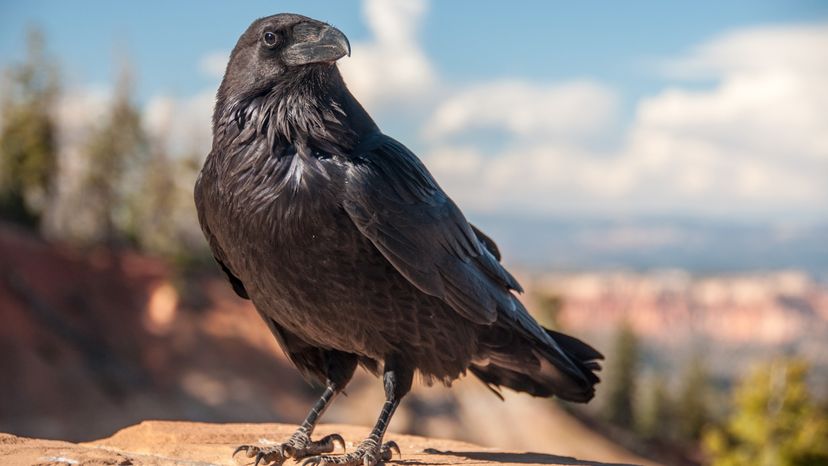Crows are scavengers and will eat almost anything. They'll devour any seeds that have been planted as well as young growing vegetables [source: Vegetable Expert]. Here we will give you some advice as to how to get those annoying crows out of your yard.
Deterrents and Scare Tactics
Adorning your home with a collection of crow deterrents can help keep these large birds away. Visual deterrents like scare crows, reflective bird tape, plastic owls or other decoy predators can be used to frighten crows. Fake dead crows are particularly effective.
Crows respond to auditory deterrents too. Playing crow distress calls or predatory bird sounds can scare away crows. With any sound, it's important that they're used intermittently to prevent the crows from growing accustomed to them.
Habitat Modification
If you begin to notice crows hanging around, then your home is most likely attracting them with tall trees, food scraps, bird feeders, pet food, or compost yard waste [source: Bob Villa]. The first thing you should do is secure these food sources.
Ensure that your garbage bins are properly sealed, and scan the property for other possible food sources. Trimming tree branches where crows roost and use bird spikes or bird netting to make landing areas less hospitable can help too.
Repellents and Exclusion
There are specific non-toxic chemical bird repellents available that can deter crows from gardens and fields. Always follow the manufacturer's instructions and local wildlife regulations when using these products.
In agricultural settings, bird netting can be used to protect crops. In urban areas, netting can also be used to protect balconies or eaves where crows might nest.
Again, crows are incredibly intelligent, and are difficult to keep away from a reliable source of food. The key to keeping crows at bay is addressing the problem quickly. So be proactive with your space, and try as many of the tips above as you can to five yourself the best chance at eliminating the problem for good.
